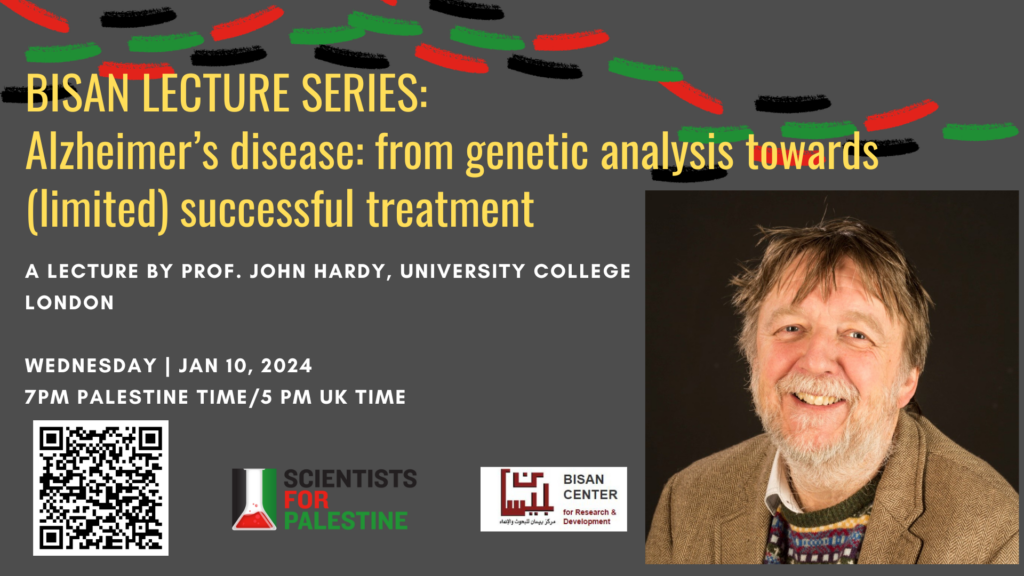
Wednesday January 10, 2024, 7 pm Palestine time
Prof. John Hardy (University College London)
Title: Alzheimer’s disease: from genetic analysis towards (limited) successful treatment.
Abstract: The pathology of Alzheimer’s disease is plaques made of the amyloid peptide, intraneuronal tangles made of the tau protein together with massive neuronal loos which underlies the dementia. Genetic analysis in early onset hereditary disease identified, first mutations in the amyloid (APP) gene and then mutations in the presenilin (PSEN) genes which liberate the amyloid peptide from its precursor protein (APP). These genetic findings led to the conceptualisation of the amyloid hypothesis for the disease which postulated that if you could prevent amyloid deposition, it would be a treatment for the disease. After many failed amyloid trials, we now have had 3 successful trials of anti amyloid therapies in the disease. In my talk I will discuss the reasons for the previous failures and discuss the successful trials and their limitations. I will discuss the role of microglia in disease pathogenesis and also how we might improve therapies by making earlier diagnoses.
Biographical Sketch of Prof. John Hardy
Following his PhD, Hardy did postdoctoral research at the MRC Neuropathogenesis Unit in Newcastle upon Tyne, England and then further postdoctoral work at the Swedish Brain Bank in Umeå, Sweden where he started to work on Alzheimer’s disease. He became Assistant Professor of Biochemistry at St. Mary’s Hospital, Imperial College London in 1985 and initiated genetic studies of Alzheimer’s disease there, before moving to the USA in 1989 then taking the Pfeiffer Endowed Chair of Alzheimer’s Research at the University of South Florida, in Tampa in 1992.
In 1996 he moved to Mayo Clinic in Jacksonville, Florida, as Consultant and Professor of Neuroscience. He became Chair of Neuroscience in 2000 and moved to National Institute on Aging, Bethesda, Maryland, as Chief of the Laboratory of Neurogenetics in 2001. In 2007 he took up the Chair of Molecular Biology of Neurological Disease at the Reta Lila Weston Institute of Neurological Studies, University College London. November 2015, he was awarded the Breakthrough Prize and in 2018 jointly the Brain Prize from The Lundbeck Foundation in Denmark. He has been awarded multiple Honorary Doctorates from around the world in recognition of his work and collaborations, which recently include in 2020 an Honorary Doctorate, from Hong Kong University of Science and Technology.
